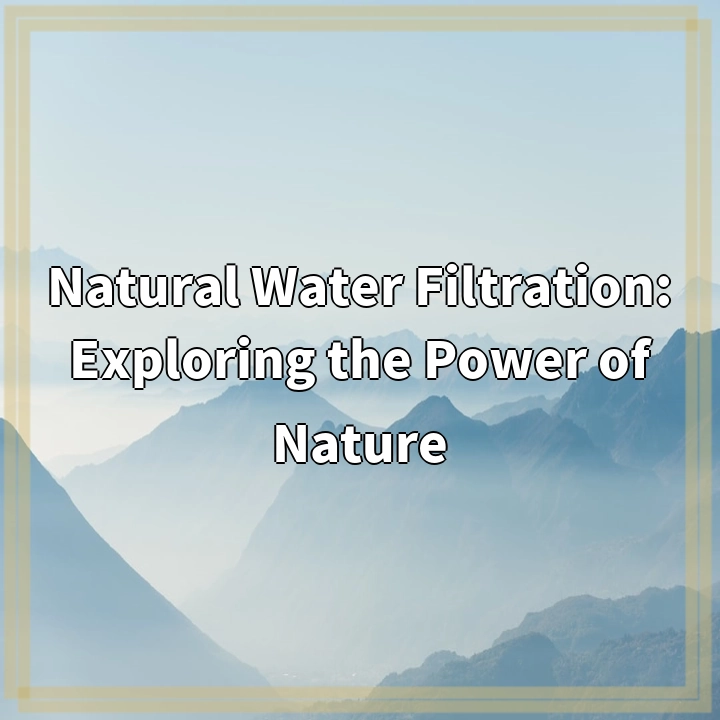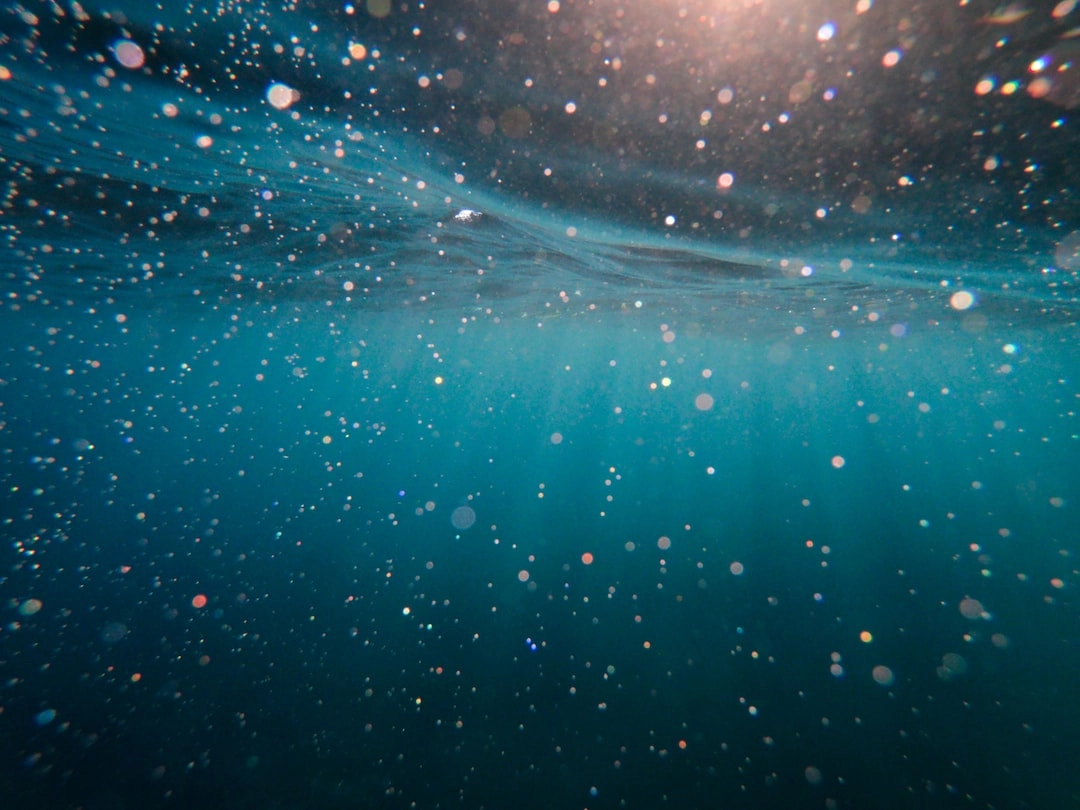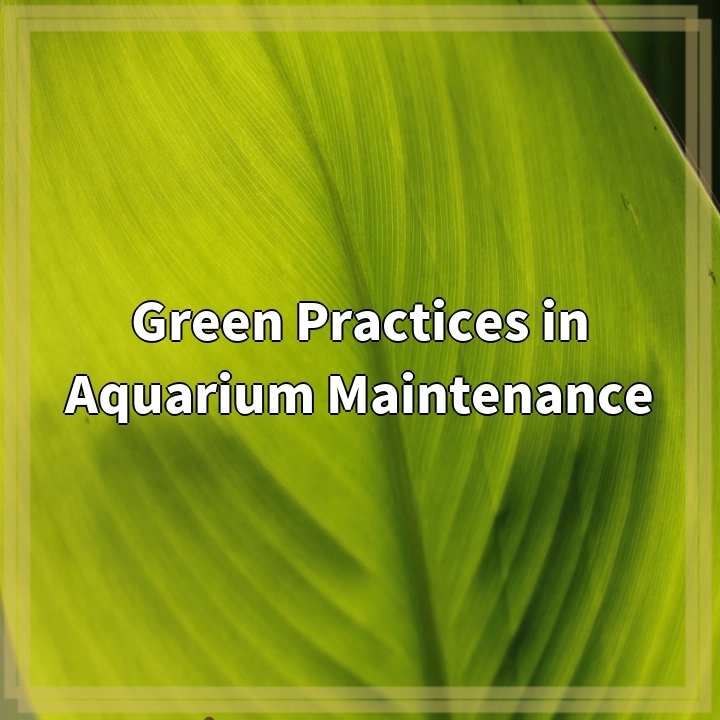
What is Natural Water Filtration?
Natural water filtration refers to the process by which natural ecosystems and organisms remove impurities and contaminants from water, resulting in cleaner and safer water sources. Unlike conventional water treatment methods that rely on chemicals and mechanical filtration systems, natural water filtration utilizes the power of nature to purify water.
This process occurs through various mechanisms such as sedimentation, adsorption, biological activity, and chemical transformations. Natural water filtration often takes place in wetlands, rivers, lakes, and even forests, where the natural components of the ecosystem work together to cleanse the water.
Real-World Problems Associated with Natural Water Filtration
While natural water filtration is a remarkable process with numerous benefits, there are also challenges and issues that hinder its effectiveness. Understanding these problems is essential for finding sustainable solutions and improving the efficiency of natural water filtration systems.
1. Deforestation and Habitat Destruction
One major problem that affects natural water filtration is deforestation and habitat destruction. When forests are cut down or wetlands are drained for human activities such as agriculture or urban development, the natural filtration systems are disrupted. This leads to increased sediment and pollution runoff into water bodies, reducing their ability to naturally filter contaminants.
2. Water Contamination and Pollution
Water pollution from industrial activities, agricultural runoff, urban waste, and other sources poses a significant challenge to natural water filtration. Pollutants such as heavy metals, pesticides, fertilizers, and chemicals can overwhelm natural filtration processes, resulting in water sources that remain contaminated and unsafe for consumption.
3. Climate Change and Altered Ecosystems
The altering climate and ecosystem disturbances have a significant impact on natural water filtration. Extreme weather events, such as floods or droughts, can disrupt natural filtration systems and introduce new contaminants into water sources. Additionally, climate change can alter the distribution and behavior of key filtration organisms, affecting their ability to effectively purify water.
4. Invasive Species
Invasive species, which often outcompete or overpower native species, can disrupt the natural balance of ecosystems and hinder water filtration. These species can alter the physical and chemical properties of the habitat, reducing the efficiency of natural filtration processes.
5. Lack of Conservation and Restoration Efforts
A lack of conservation and restoration efforts poses a significant problem for natural water filtration. Without adequate protection and restoration of wetlands, forests, and other natural filtration systems, their capacity and effectiveness in purifying water will continue to diminish over time.
By addressing these real-world problems associated with natural water filtration and implementing appropriate solutions, we can harness the power of nature to ensure clean and sustainable water sources for generations to come.

Solutions for Natural Water Filtration Challenges
Addressing the real-world problems associated with natural water filtration requires a multi-faceted approach that combines conservation efforts, sustainable practices, and restoration initiatives. By implementing these solutions, we can enhance the effectiveness of natural water filtration systems and protect our water sources.
1. Reforestation and Wetland Restoration
One key solution is to prioritize reforestation and wetland restoration efforts. By planting trees and restoring wetlands, we can recreate the natural filtration systems that have been disrupted by deforestation and habitat destruction. These restored ecosystems act as natural filters, reducing sediment runoff and improving water quality.
2. Pollution Prevention and Reduction
To combat water contamination and pollution, it is crucial to focus on pollution prevention and reduction strategies. This includes implementing strict regulations on industrial activities, promoting sustainable agricultural practices that minimize chemical runoff, and implementing effective wastewater treatment processes. By reducing the amount of pollutants entering water bodies, natural filtration processes can perform more efficiently.
3. Climate Change Mitigation
Mitigating climate change is essential for maintaining the integrity of natural water filtration systems. This involves reducing greenhouse gas emissions, promoting renewable energy sources, and implementing measures to adapt to the changing climate. By minimizing the impact of climate change, we can help preserve the functioning of ecosystems and ensure their continued ability to filter water effectively.
4. Invasive Species Management
Eradicating or controlling invasive species is crucial to restore the natural balance within ecosystems. This can be achieved through targeted management strategies such as eradication programs and natural control mechanisms. By mitigating the negative impacts of invasive species, we can enhance the efficiency of natural filtration processes.
5. Education and Community Engagement
Providing education about the importance of natural water filtration and engaging communities in conservation efforts is vital. By raising awareness and involving local communities in monitoring and protecting water sources, we can foster a sense of ownership and responsibility. Education and community engagement can drive sustainable behaviors and support long-term conservation efforts.
By implementing these solutions, we can overcome the challenges and protect the vital role that natural water filtration plays in maintaining clean and healthy water sources. By working together, we can ensure a sustainable future for both our ecosystems and our communities.















